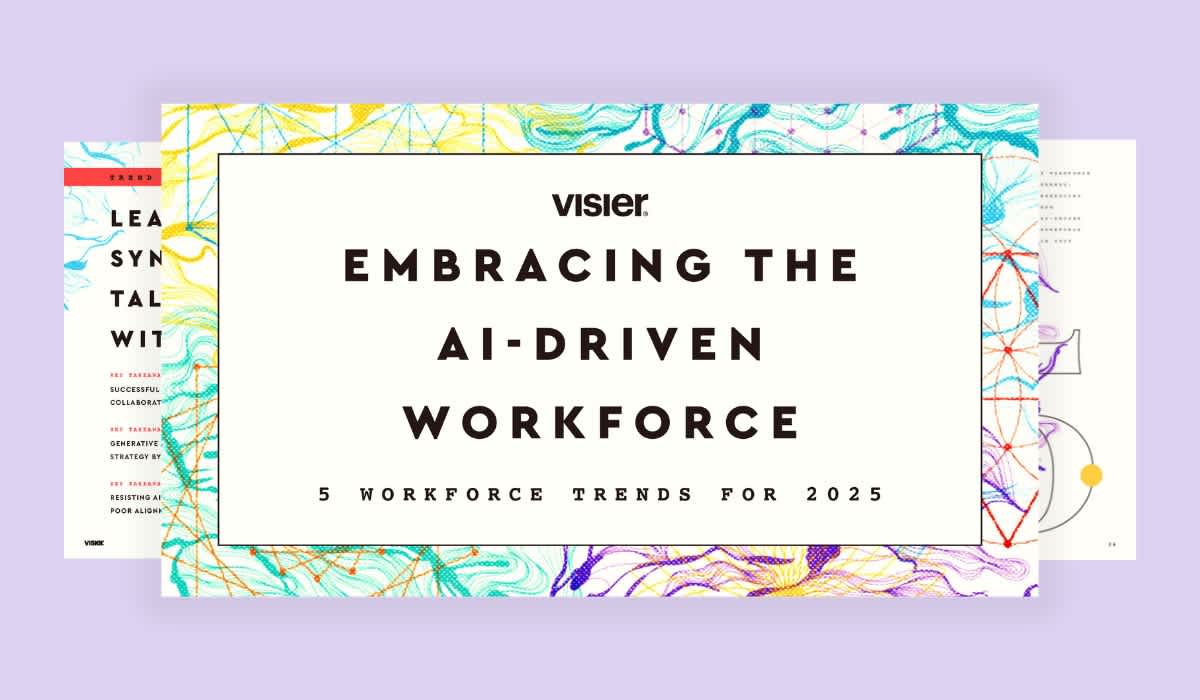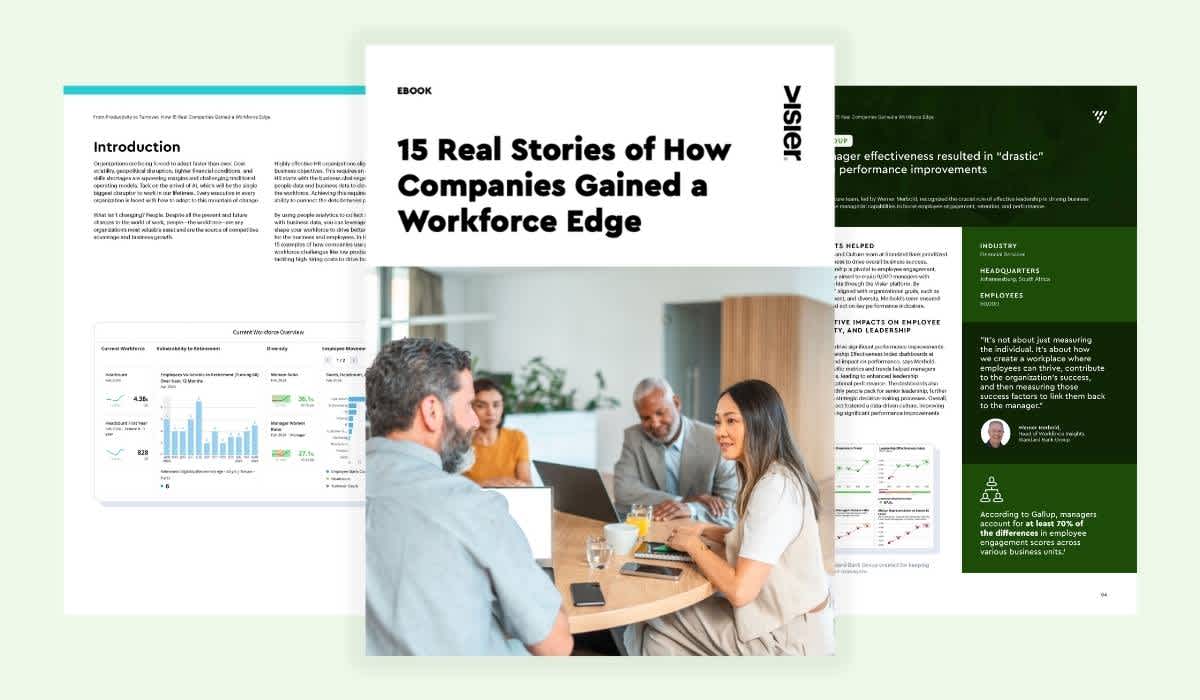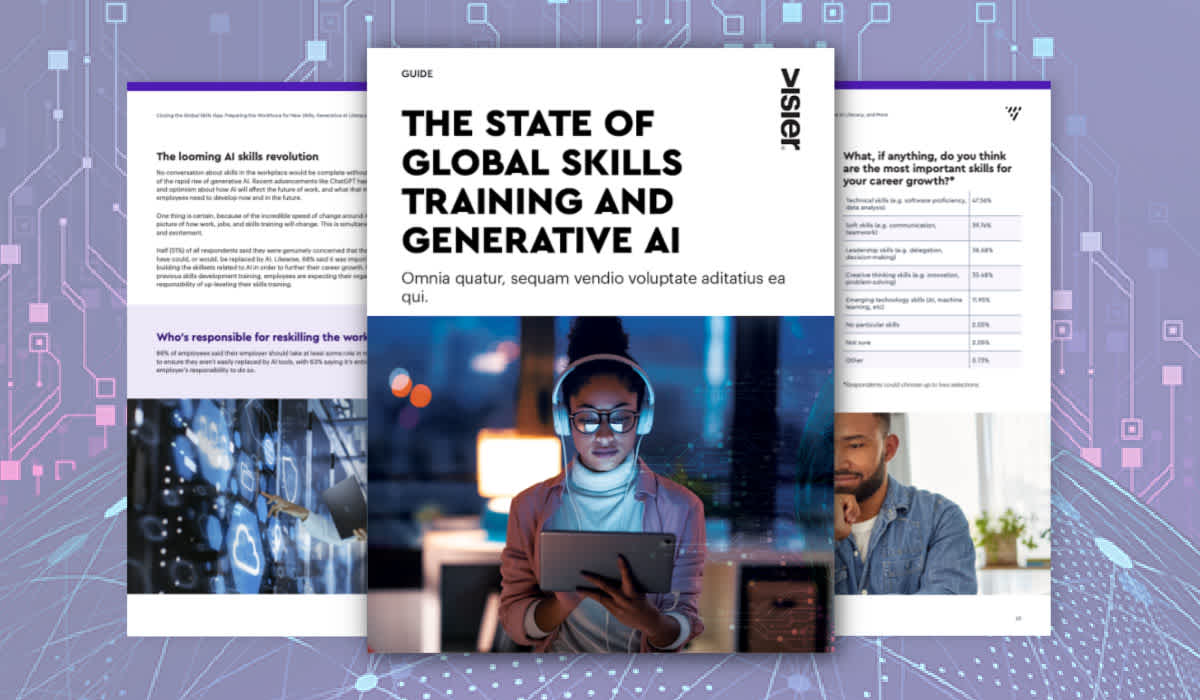Essential AI Skills: A Guide for HR Leaders, Managers, and Executives
Learn what AI skills are, why they are crucial for HR leaders and managers, and actionable insights to bridge the AI skills gap in your organization.

Artificial intelligence (AI) and, specifically, generative AI (genAI) have dramatically disrupted the business world and how work is done. Despite being an advanced technology tool, AI usage is no longer limited to traditionally technical roles.
According to a McKinsey survey, 88% of active genAI users are in non-technical jobs, and Microsoft found that 75% of knowledge workers use AI at work today. Employees across organizations must understand how to use AI effectively and develop the technical skills that can allow them to do so. For HR leaders, that also means helping employees in their organization develop these skills.

Which AI skills are important to non-technical roles?
AI skills for non-technical roles involve the ability to effectively use AI tools to get work done. Employees in all types of roles need to understand how these tools work and how to use them to do their jobs through practical application and strategic thinking. These skills include:
Familiarity with AI-powered tools and platforms and how to use them.
The ability to understand data interpretation and analysis.
Using AI insights to make strategic decisions.
Effectively identifying and navigating ethical considerations in AI implementation.
Intelligent interrogation is one of these crucial AI skills. It involves using research-based AI prompting techniques to interact with tools like ChatGPT or Claude to obtain accurate and relevant results. Becoming adept with intelligent interrogation allows employees to extract valuable insights and improve the quality of the outputs they generate through AI tools.
Having a basic understanding of how to use AI-based software for analytics and projections is becoming increasingly important, even in non-technical roles. Having this knowledge allows users to make data-driven decisions that are both insightful and actionable.
AI skills are important for HR leaders and the C-suite
AI skills are growing increasingly important for both HR leaders and members of the C-suite. In fact, a recent Visier survey revealed that 87% of managers believe that AI tools will make them more effective in their jobs. That confidence is mirrored by research from Frost & Sullivan, indicating that 89% of organizations feel AI and machine learning will help grow revenue, improve operational efficiencies, and boost customer experiences, according to TechTarget.
87% of managers believe that AI tools will make them more effective in their jobs
Visier’s research shows that 64% of managers have already used genAI tools to support their people management roles, and 81% would use an AI tool at least weekly if it provided insights on employee performance, compensation correlations, resignation risks, DEI improvements, and talent acquisition strategies.
AI tools can access, review, and synthesize massive amounts of data and information, boosting decision-making and resulting in significant cost efficiencies by streamlining processes and reducing operational costs. AI can also be leveraged for workforce planning, making the process far more data-driven and accurate.
Today’s HR and C-suite leaders can’t afford to not learn and hone skills in using AI; if they don’t, they risk falling behind—and so do the companies they work for.

The role of AI skills in workforce planning and talent development
As AI is impacting the workforce it is having a marked impact on the skills required to do virtually every job. These impacts require new training and upskilling strategies to ensure that employees are prepared to use AI tools.
Employees expect their employers to provide them with AI-related training—86% feel employers should take at least some role in reskilling to minimize the chances that they will be replaced by AI tools; 63% believe this should be entirely the employer’s responsibility. In fact, only 24% of intermediate-level and 27% of entry-level employees have spent significant time educating themselves on using GenAI professionally. Among business owners and C-suite executives this percentage rises to 80%.
HR leaders have an opportunity to step up to consider how their organizations can provide the kind of workplace planning and upskilling required in the AI era. This will involve:
Mapping organizational skills that currently exist.
Determining the skills that will be lost.
Identifying the skills that need to be developed.
Assessing skills gaps.
Matching learning content to skills gaps.
This assessment should include both hard and soft skills. In addition, it will be important to assess current AI skill levels and implement targeted training programs. Encouraging experimentation and learning through hands-on projects and fostering a culture of continuous learning and adaptation can help interest and engage employees in their own upskilling.
Reciprocal apprenticing can be leveraged here. This is an approach that encourages a two-way relationship between employees and the AI tools they’re using. As they’re using these tools they’re also training the tools to produce better results. It’s an important strategy for organizations to develop AI skills while also getting the most value from these tools, like ChatGPT, Claude, Visier's Vee, or their proprietary software. Employees become more active learners because they’re also actually shaping and improving the tools through their ongoing interaction and feedback.
Organizations are quickly moving to provide employees with the skills they need. For example, Booz Allen Hamilton created a program to upskill its 34,000-employee workforce to be “AI Ready.” SHRM reports that some companies, like Korn Ferry, are using new training methods, such as “communities of learning,” to remain responsive to rapid changes in AI tools.

Actionable takeaways for managers and HR leaders
For managers and HR leaders, the need is clear—both they and their employees need ongoing training and upskilling to remain aware of the various AI tools now at their disposal and to understand how to use them most effectively. Here are some important steps to take now:
Assess current AI skill levels. Evaluate the current level of AI knowledge and competency across teams and identify gaps relative to known applications for AI.
Incorporate AI training programs using user-friendly AI tools and prompt engineering, including education on the use of intelligence interrogation to drive better business outcomes.
Set AI skills benchmarks for hiring. Make sure that job descriptions are up to date and reflect basic AI skill requirements, especially for roles that involve decision-making or reciprocal apprenticing with AI tools.
Understand AI’s limitations. AI isn’t foolproof. It’s important to help employees understand where AI can assist and where their own judgment must come into play to ensure accurate, ethical outcomes.
Companies can realize a great deal of potential through the effective, informed, and appropriate use of AI. Make sure you understand how your employees are currently using these tools, any skills gaps that may exist, and that you’re taking steps to close those gaps while also ensuring employees and your organization remain on top of new developments and advancements.
FAQs on AI Skills for non-technical roles
1. What are the most important AI skills for non-technical employees?
Key AI-related skills for non-technical employees include creating prompts (e.g., intelligent interrogation) to generate information, making decisions based on AI insights, and ethical considerations in the use of AI.
2. How can HR leaders start integrating AI skills training into their workforce?
HR leaders can start integrating AI skills training by first assessing current skill levels related to learning needs, then identifying gaps, and then developing targeted training programs. Encouraging hands-on experience with AI tools and providing opportunities for experimentation can help engage employees in the learning process.
3. How do AI skills impact workforce planning?
AI skills can enhance workforce planning by improving strategic and accurate data analysis, driving predictive insights, and anticipating future skills needs. Doing this allows HR leaders to make more informed decisions about talent acquisition, development, and retention.

More on AI and employee skills
Visier's 2025 Workforce Trends Report is out now! Explore how AI is transforming talent management, the C-suite, employee performance, and more. Download the full report.
In an AI-first workplace, technical skills, soft skills, and hard skills are changing. Read on to learn how types of skills are evolving and how to adapt.
New research shows managers are excited about generative AI’s ability to democratize people-related data and improve manager effectiveness. Can HR deliver?
Vee, Visier's genAI assistant, answers questions for HRBPs about the workforce in seconds. Take a look at 10 real examples of answers from Vee.


